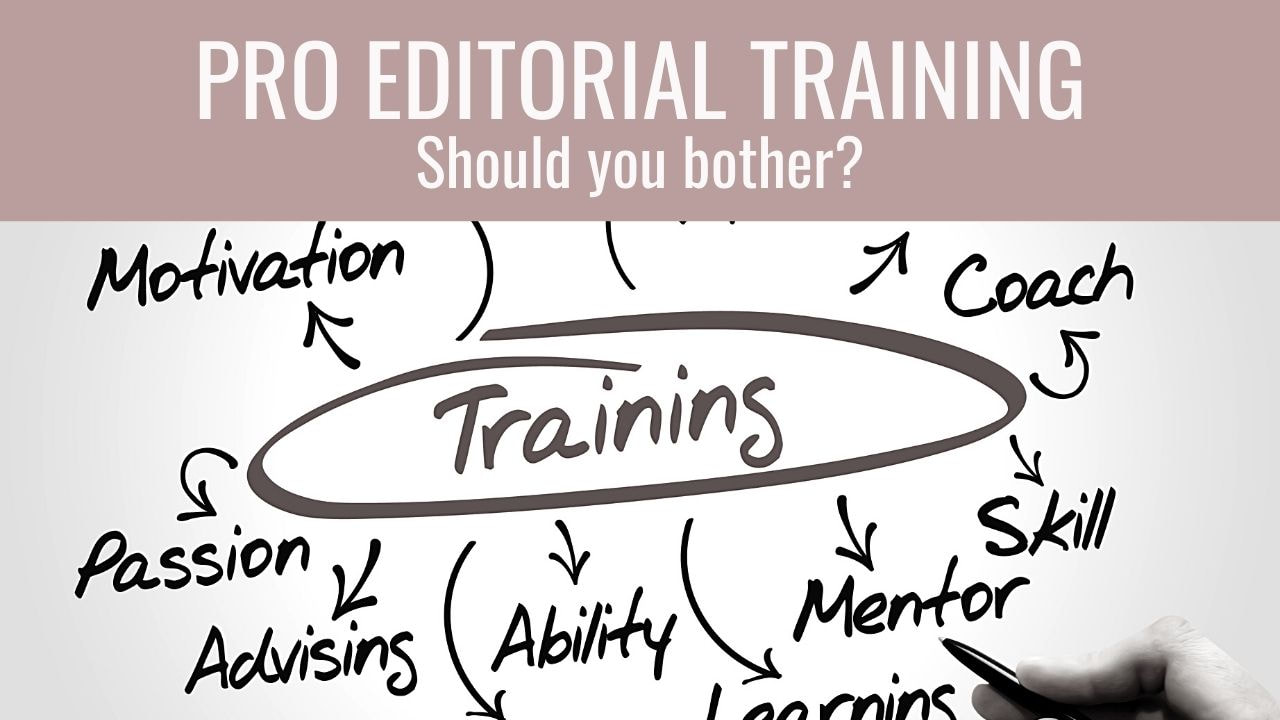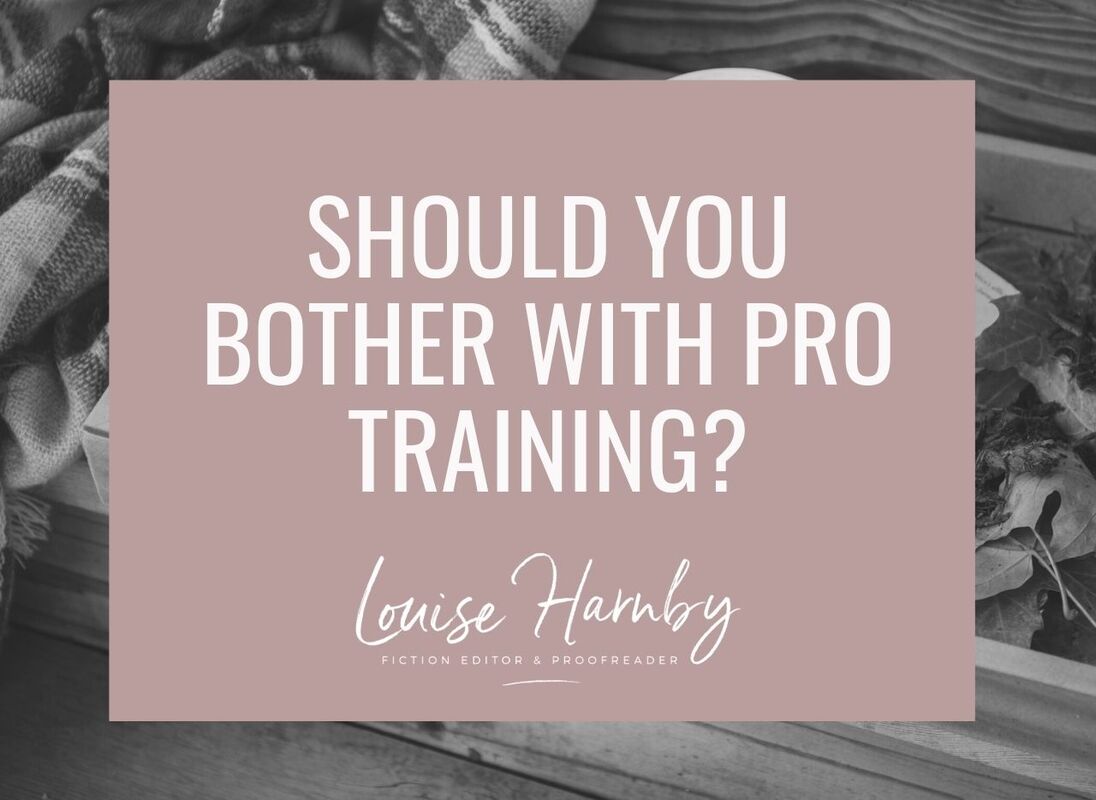|
Professional proofreading training provides you with more than just technical knowledge and skills. It also gets you into the mindset of good business practice: pacing, taking stock, and focusing on the detail.
I've been delighted to read how, at the time of writing, a number of UK-based proofreaders-in-training have successfully completed the Publishing Training Centre’s distance-learning proofreading course, a comprehensive offering that, along with the CIEP training suite, is well respected within the UK publishing industry.
I took this course in 2005 and I believe it provided me with a foundation that made me ready for the practical side of actually doing the job. Consequently I have no problem recommending it to those who ask my opinion on the matter. I learned a huge amount from this course (which I took seven months to complete) and also from colleagues in my prior workplace. Perhaps one of the most important pieces of knowledge I acquired, and that I needed in order to make a proofreading career viable from a practical point of view, was the necessary mindset. Old working practices I come from a publishing background. My first job was in the European marketing, sales and distribution office of Williams & Wilkins, the Baltimore-based STM publisher. I was a sales promotion manager. From there I moved to SAGE publications, a well-known independent social sciences and educational publisher (though their publishing programme has expanded somewhat since my day). I was employed as a senior journals marketing manager and remained so for the rest of my office-bound career. The colleagues with whom I worked most closely were commissioning editors, fellow marketing execs, and editorial production managers.
Learning from editorial production … I finally left SAGE to dedicate a couple of years to child-rearing. My little family moved to the Norfolk countryside and we revelled in the stunning rural views from the windows of our home and enjoyed the space, the grass, the deer, and the short drive to the beach. And then I got itchy feet. I wanted back into publishing but I wanted it on my own terms – freelance proofreading seemed like the solution. But my editorial production colleagues had already taught me to ask an important question: Do I have the right mindset for the actual practice of proofreading? As I've said, my background was in marketing. I was used to being in a work environment that was about ideas and experimentation. I'm not saying that there were no processes to attend to or that I didn't have certain business parameters to work within. I did, of course. But following a brief, pedantic punctuating and a careful, methodical, almost plodding attention to detail weren't the criteria at the top of my job description. If I was going to transition to a proofreading career, I would need to ensure that the appropriate mindset was embedded in the way I approached my work. I knew I had a tendency to get a bee in my bonnet and jump in without looking where I was going. It’s in my nature! To be a proofreader I needed to slow down. I needed to be a detail person. Left field needed to be left behind! Learning from professional trainers … That’s why I chose the Basic Proofreading by Distance Learning course. I wanted a comprehensive training tool that would make me practice-ready, but I wanted to be assessed, too. I needed to be able to see where my weaknesses were, as well as my strengths. And I needed to practise being a detail person – to embed that mindset of attending to the method, the process, the instructions, so that I could do what the client wanted. A target market for me was always going to be social science publishers – I've a politics degree and in-house experience, so it made sense right from the start. I knew these publishers would have demanding expectations of their proofreaders and I wanted to be ready. Ready for the house brief, ready for the method, ready for the deadlines. Practising the mindset … How did I prepare? I read each chapter’s theory several times. I photocopied the exercises several times. I’d do them, trying my best to mark up in the way the chapter had advised. I’d mark my own efforts, make notes about my weaknesses, re-read the appropriate course material, and then put the exercise away for a few days. Then I’d do it all over again – this helped me see if I’d learned from my previous mistakes or whether the information had gone in one ear and out of the other. Then I’d do it a third time – leave alone for a few days and then repeat the exercise. When I was confident I’d nailed it, I’d photocopy the assessed test so that I had three copies. Then I’d do the test, put it away, re-do the test, compare, see if I was consistent, put it away, go through it one last time, attend to anything I’d missed, and then submit. It was laborious. But I learned to slow down; I learned what my weak points were; I learned a systematic method of working practice that focused on my client's instructions and objectives. I became so used to working like this that it embedded this careful attention to detail in my mind – something that I rely on every time I'm commissioned to work on a project. Of course my publishers don’t budget for me to do multiple passes on a piece of work, with several days of quiet reflection in between! Now that would be a luxury! But I'm glad I had the space to do this, to learn that mindset, to get used to being a detail person. So, if you fancy proofreading as a career, ask yourself the same question: Do I have the right mindset for the actual practice of proofreading? If you’re not sure, use your training* space to practise the careful, methodical process of attending to detail, according to the instructor’s brief. You won’t regret it and the time taken will be an investment that you can carry with you throughout your future career. * If you're still deciding which course to take, your national editorial society will be able to offer advice about the training options available in your region.
Louise Harnby is a line editor, copyeditor and proofreader who specializes in working with crime, mystery, suspense and thriller writers.
She is an Advanced Professional Member of the Chartered Institute of Editing and Proofreading (CIEP), a member of ACES, a Partner Member of The Alliance of Independent Authors (ALLi), and co-hosts The Editing Podcast. Visit her business website at Louise Harnby | Fiction Editor & Proofreader, say hello on Twitter at @LouiseHarnby, connect via Facebook and LinkedIn, and check out her books and courses.
10 Comments
17/1/2014 10:25:51 am
A really useful blog post, Louise. Lots of sound advice for acquiring the appropriate mindset, even for those of us outside the proofreading profession. Thanks for sharing.
Reply
Louise Harnby
17/1/2014 01:22:56 pm
Glad you liked it, Mary!
Reply
Sarah Dunwoody
19/1/2014 12:30:40 am
Again, an extremely helpful and informative article! I'm signing up for this very course after pay day (would have been this month but a fox ran out in front of my car and broke it...but that's a whole different story) and I can't wait to start. If I may say Louise, you're becoming a bit of a proofreading legend with all your helpful advice!
Reply
Louise Harnby
19/1/2014 02:25:25 am
Hi Sarah! I'm really glad you're finding the Parlour useful. My way's not the only way but my aim with these articles is to highlight certain ways of thinking about things based on my own prior experience. There are some editorial freelancers for whom working in a methodical way comes easy because that's the kind of people they've always been. Others need to cultivate an approach - I preferred to hear about my strengths and weaknesses from an instructor rather than a client!
Reply
27/8/2014 03:13:25 pm
I really enjoyed your distinction between vision, creativity and detail and the corresponding roles in publishing.
Kim Herring
17/8/2014 01:33:04 am
Very interesting and informative, Louise. I have just submitted the first assignment and await results with not a small amount of trepidation. I did put the 'multiple pass' idea into action on the final test, but will do so on exercises as well from now on! Many thanks!
Reply
23/5/2015 05:21:22 am
Just came across this post today. Last week, I completed the Proofreading 1 course from SfEP - and discovered exactly this point! I need to slow down! (I also discovered just how much of the proofreading basics I know from my secretarial/copywriting business.) So currently doing some planning, thinking about more training and getting some practical experience from (non-publishing) clients. Nice way to spend a Saturday afternoon ... PS: Love the Proofreader's Parlour.
Reply
Ginny
5/2/2018 01:07:17 pm
I really enjoy your blog, Louise, thank you! I completed the PTC proofreading course and really need more practice with things like text boxes, diagrams, spotting spacing issues---do you know of any resources that will help me get more practice? For some reason I'm ok with the typos, etc, but design elements seem to pass me by. Thanks!
Reply
Louise Harnby
5/2/2018 04:11:25 pm
Hi, Ginny!
Reply
Ginny
8/2/2018 03:16:39 pm
Thank you so much, Louise! I really appreciate the tips and I'm looking forward to digging in. Leave a Reply. |
BLOG ALERTSIf you'd like me to email you when a new blog post is available, sign up for blog alerts!
TESTIMONIALSDare Rogers'Louise uses her expertise to hone a story until it's razor sharp, while still allowing the author’s voice to remain dominant.'Jeff Carson'I wholeheartedly recommend her services ... Just don’t hire her when I need her.'J B Turner'Sincere thanks for a beautiful and elegant piece of work. First class.'Ayshe Gemedzhy'What makes her stand out and shine is her ability to immerse herself in your story.'Salt Publishing'A million thanks – your mark-up is perfect, as always.'CATEGORIES
All
ARCHIVES
July 2024
|
|
|
|

















 RSS Feed
RSS Feed





